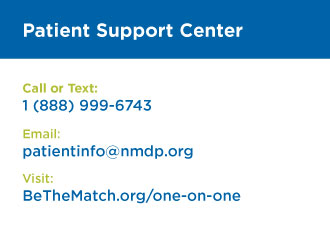Tell us a bit about yourself, why are you so passionate about the National Donor Marrow Program/Be The Match? How did you get involved?
In 2001, my husband was diagnosed with non-Hodgkin lymphoma (NHL) as a result of his exposure to Agent Orange during the Vietnam War. Although chemotherapy followed by an autologous bone marrow transplant extended his life for 7 years, he had no match for an allogeneic bone marrow transplant. His NHL eventually developed into acute myeloid leukemia, which was too far advanced for a cord blood transplant.
I was determined to do something to make sure no one else had the devastating experience that our family had. So I applied and joined the Be The Match Board of Directorsin October 2010.
I spent 45 years in government relations and policy, both within the federal government in Washington, D.C., and with two major corporations, mostly in health care and public policy. I have used my advocacy skills on both sides, which helps me in my role on the board of directors.
Advocacy and policy is a unique way to volunteer, what made you decide to take action?
Adequate reimbursement is a critical issue facing the NMDP/Be The Match network and, in particular, the Medicare patients who need life-saving bone marrow transplants. As the widow of a Vietnam veteran, I also know that an appallingly large number of other Vietnam veterans, now covered by Medicare, are battling blood cancers as a result of their service in that war.
Medicare needs to ensure payment equity between those patients who receive solid organ transplants and those who receive “liquid” or bone marrow/stem cell transplants. A payment change will address financial issues currently encountered by hospitals serving Medicare beneficiaries.
Given my knowledge and experience in advocacy and policy, this effort afforded me a way to put both to use on behalf of NMDP/Be The Match.
You met with your lawmakers before your trip to Washington, D.C., what advice would you give to someone who hasn’t worked with their lawmaker before?
Know the issue and the arguments on both sides. Provide the staff with no more than 3 concise reasons why they should take action on your issue. Be polite; make eye contact, leave them with a one-page summary sheet on the issue and send a short follow up note of thanks for their time and interest.
In many cases, you are meeting with young staff members who are inundated with issues and may not understand or appreciate the significance of your request. Give them examples of situations they can relate to. Be familiar enough with the congressional members, their interests and background to find common ground.
Do you have any advice for other advocates?
Despite the constant rhetoric about partisan conflict in Congress, it is always reassuring to see that many congressional offices do, in fact, work across the aisle with leadership or members from the other political party. The issues that NMDP/Be The Match champions are not divisive or political; they affect the lives of people these members might know!
Finally, remember that all politics is local. If you can give congressional staff specifics on how the issue affects people and organizations in their districts/states, you will provide them with more ammunition and incentive to take action. And above all, have fun! Talking to elected officials and their staff is part of our democratic right and privilege and you can have an impact on how they assess the issue and take action.
Superstar Advocate: Ann Berkey
Wednesday, June 5, 2019


